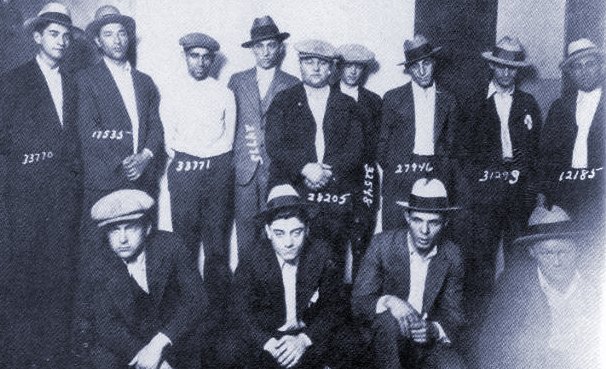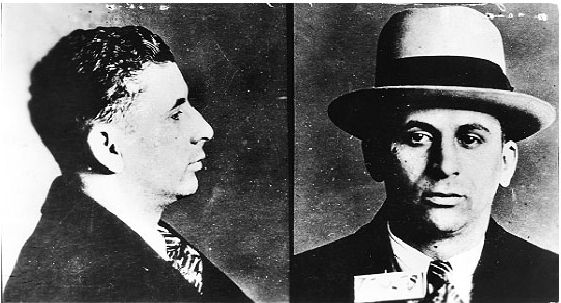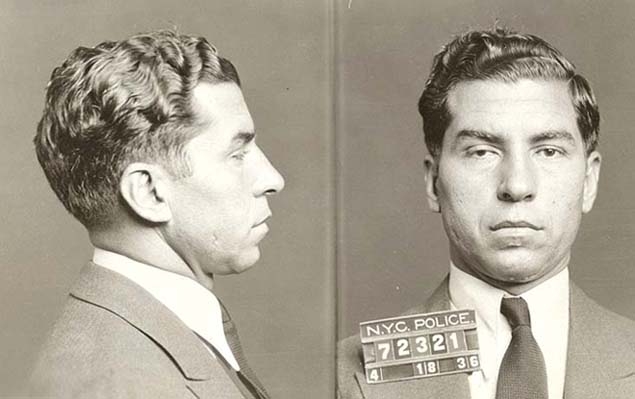- Home
- Krav Maga Blog
- Krav Instructors
- Train in Israel
- Tour Train Israel
- Krav Shop
- DVD
- Kickboxing
- IKI Near Me
- Seminars
- IKI Membership
- On-Line Training
- Krav Maga Training
- Testimonials
- History Krav Maga
- Instructors Page
- Past Blogs
- Spanish
- Italian
- Certification
- Contact
- Holland Seminar
- Vienna Seminar
- Poland Seminar
- Italy Seminar
- Belt Requirements
Lessons from the Mob
By Moshe Katz
CEO
Israeli Krav International
Los Angeles, CA, USA, June 25, 2015
The rabbis say "Who is wise? he who learns from every man".
And indeed even from the Mob there is a great deal to learn: Do's and Don't's.
I am referring to the Jewish and Italian organized crime units in the early part of the century; 1920 - 40, give or take.
But first an important disclaimer.
These men were criminals, gangsters, thieves and murderers. There is no justification whatsoever for their behavior, not then nor now. In no way will I try to glorify to justify their behavior, I only wish to learn from them what I can. For despite what evil they caused they played an important role in history and in the American Dream.

The Purple Gang of Detroit, a mostly Jewish organization lead by the Bernstein brothers.
Growing up my dear dad was a fan of the Jewish gangsters, as were many Jews. Not that they would ever contemplate such activities themselves but they admired the "Tough Jews" who hit hard. Jewish boxers, Jewish gangsters, Jews and Italians who took no crap from anyone.
There was something about these Tough Guys that the average person looked up to, a certain movie star glamour. Thank God that generation is gone.
The sons of the Jewish gangsters went to university, became doctors and lawyers and integrated fully into the American world. And yet there was some lasting contribution of the gangsters; they built Las Vegas and started many industries that eventually went fully legal, they protected their neighborhoods and they contributed to the struggle for the State of Israel.
But there was more.
Thee are certain principles that we can learn from this generation of criminals. They were than just thugs, and today's leaders could actually learn a thing or two from them. As Mayor Rudy Giuliani said, "They were horrible but brilliant".

Meyer Lansky, a criminal, a leader, a visionary.
Born Meier Suchowlański in Belarus, 1902. Died in Miami Beach, Florida. Business was based on trust, he met Arnold Rothstein at a bar mitzvah.
Generosity - Mobsters were known to be generous and to reward good work. As Meyer Lansky said, we paid on time, we paid cash and we paid bonuses. Every worker needs to feel appreciated and to feel that the boss is sharing the wealth.
Lansky always believed in tipping big. Tipping was an investment.
Leadership - The gangsters were known for recognizing talent. In the mob they would say - Smart people recognize smart people. They gave these people a chance, they were not afraid of them. All too often in regular organizations smart people are intimated by other smart people and will do everything possible to stop their path to success. Not so with the mob, a young man with intelligence was recognized and given every opportunity. He was seen as an asset.
Decision Making - Lucky Luciano said if you want to get ahead you must have no fear of decision making. Leadership requires decisive decision making. All too often people are afraid to make decisions. They hesitate, they wait and the opportunity is gone. No one will follow someone who cannot make decisions.
Leadership requires decision making and it is often very difficult.
See Potential - When the depression hit the USA most people became...depressed, (thus the expression). Not so the gangsters. Lucky Luciano saw great opportunities. He started lending money at slightly higher ranks than the banks. Thus came the expression "Loan Sharks".
A business that needed money desperately to survive, but could not get it from the bank, came to Lucky. For many businesses this was a matter of survival.
The key here is that every situation can present an opportunity. Where one sees only despair another sees huge opportunity.
The Mob built Las Vegas in the desert where others saw just a useless piece of land.
Trust - This might sounds strange but where there is no law there must be trust. A piece of legal paper did not matter, it was a matter of trust. A deal depended on trust. Business relationships depended more on trust than in regular business. Your word was your calling card.

Lucky Luciano, born Salvatore Lucania in Lercara, Italy, 1897
Racism - Even in the martial arts racism has played a major role. Racism against Blacks and Asians was certainly still a key factor in the 1970s. But the gangster knew no race. Long before inter-racial gatherings the Jewish, Italian, Irish gangsters worked together. Race was not a factor.
Lucky and Meyer were so close that often Lucky's Italian associates would say, "Lucky, I swear, one of these days those Hebs will get you to join their synagogue."
Consequences - In life we teach that if you mess up, if you make mistakes, there will be consequences. But most people ignore this.
We teach that you must train in Krav Maga, you must take safety precautions, you must study how to act and dress on a plane and in an airport, but most people do not.
With the Mob there were immediate consequences. I cannot count how many people owe me money, but with the Mob, people learned to pay back or else. People understand the facts of life, if you play you have to pay. This is a lesson I wish more people understood.
The Mob were gangsters but they knew that a word had to be a word, a word of honor.
Competition - We all face competition. The mobs had different ways of dealing with competition, one of which was to murder the competitors. But this however was not the first choice and not the preferred method.
The Mob faced competition mostly by being more innovative. They were always looking to expand, improve, develop new talent, reach new markets and seize opportunities. They were not afraid to change gears in mid drive.
That generation of mobsters is dead and gone. I hope that era never returns. Nonetheless they did make certain contributions and there is much we can learn from them.
Join IKI On Line
Stay on the cutting edge of Krav Maga
We are innovative, cutting edge, always seek new and better ways to teach people to defend themselves.
Never be caught unprepared....
IKI On Line Distance Training and Certification